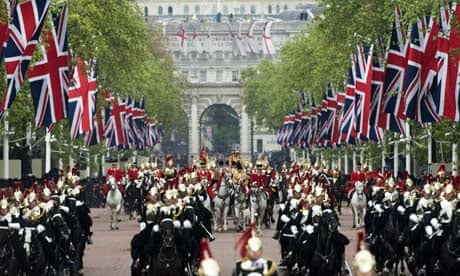Here at the Foreign and Commonwealth Office, I run an internal blog for our in-house communicators, who support more than 270 embassies and high commissions around the world, each one of them doing its bit to communicate UK foreign policy.
I took over as head of communications excellence in March 2012. Before that, I ran marketing campaigns for other government departments for10 years, with a stint in crisis communications, and before that, I worked in magazines and newspapers, and had a little branding consultancy on the side. It's my job to help colleagues across the office get the skills, guidance, and support they need to deliver excellent communications work as part of excellent foreign policy. It's a fantastic opportunity to work on global issues and alongside some of the most dedicated and capable people in public service.
We often call it public diplomacy, and it works best when it draws on our 'soft power'. In a nutshell, power is the abilityto get what you want. You can go about this by threat or by coercion (hard power), or you can attract and co-opt others so that they want what you want (soft power). The phrase soft power, coined by Harvard professor Joseph Nye in 2004, is now widely used in international affairs and it is acknowledged that it is now less possible than ever before to achieve our international goals by exerting hard power alone. We need to make the most of all the things that have potential to make us attractive - our culture, values and policies.
There are many examples of these. Here's just one.
At the beginning of 2012, we went to Buenos Airesto work with the communications teams across Latin America. We talked about lots of things, including the Falklands, but what really came out of it for me was a gem of an idea about using the GREAT campaign and our soft power to reach out to a new generation in Cuba.
The idea came from our comms officer there who went back to Havana and put together a good business case (so good, in fact, that commercial sponsors like Virgin Atlantic and Diageo found funding for it), for a campaign which included music, theatre, dance, cinema, historical exhibits and a marketing communications push. In the words of our then-ambassador to Cuba, the campaign transformed our visibility and enabled us to reach a popular audience usually off limits to an embassy, change attitudes towards the UK and further our prosperity and London 2012 objectives. Cuban contacts, including ministers, have lined up to shower praise on the embassy while the rest of the diplomatic corps cannot hide their envy.
It's great to feel that you helped light a spark like that, and I'm always impressed by how creative our own people can be. I do hope this blog finds its readership – I'm up for questions, comments and challenges!
Michelle Patel is the head of communications excellence at the Foreign and Commonwealth Office
This article is published by Guardian Professional. Join the Guardian Public Leaders Network free to receive regular emails on the issues at the top of the professional agenda.

Comments (…)
Sign in or create your Guardian account to join the discussion